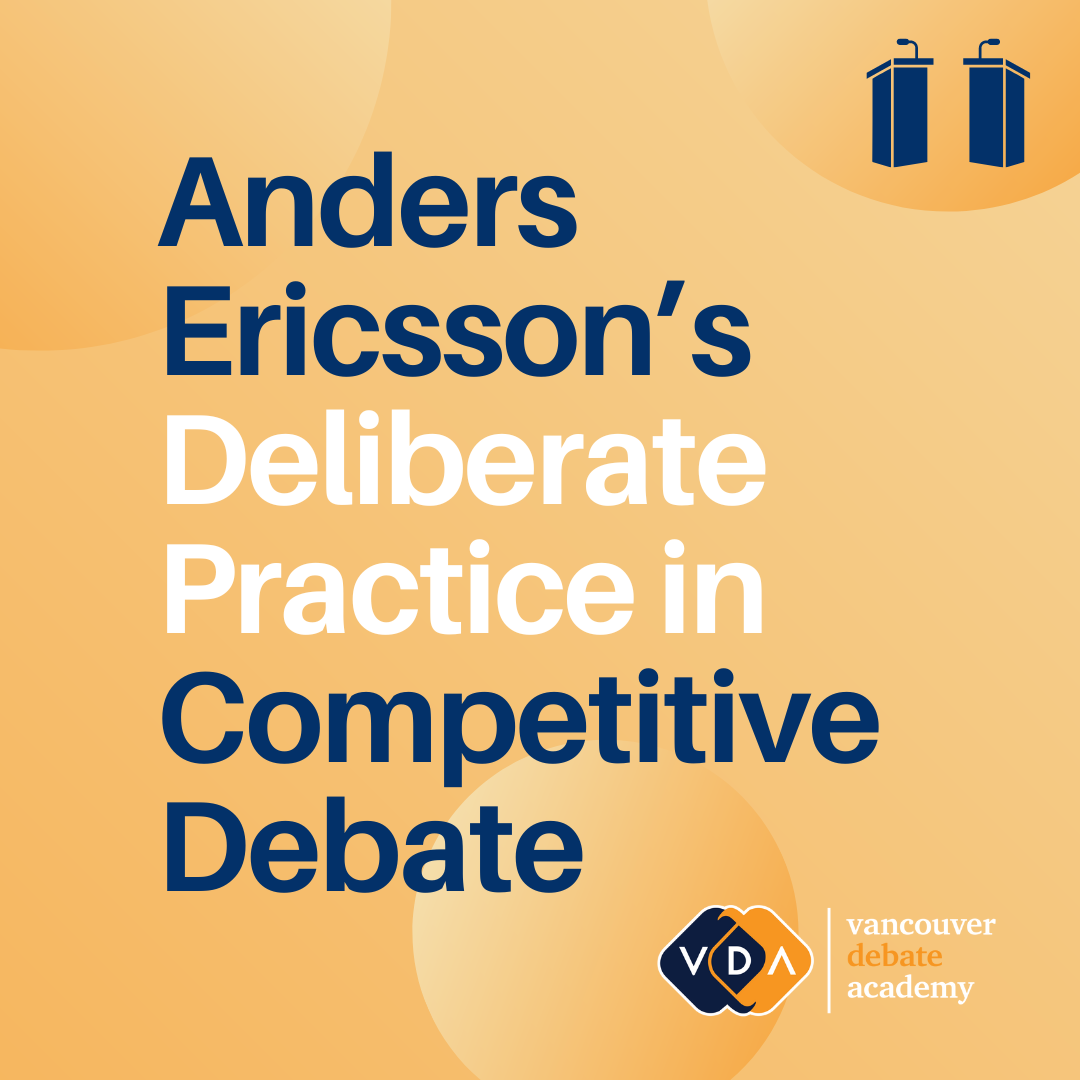Anders Ericsson’s Deliberate Practice in Competitive Debate

Anders Ericsson, a Swedish psychologist born in 1947, revolutionized our understanding of human expertise. His research showed that deliberate practice, rather than innate talent, is key to achieving high performance. In his influential 1993 paper, The Role of Deliberate Practice in the Acquisition of Expert Performance, Ericsson argued that what he calls “deliberate practice” is essential. A prime example is Mozart; although seen as a natural genius, Ericsson believes Mozart’s extraordinary abilities came from early exposure to music, rigorous training from his father, and sustained, intense practice during critical growth periods. These principles of deliberate practice also apply to competitive debate, where structured training with clear goals, guidance of expertise, and immediate feedback are crucial for success.

The Core Components of Deliberate Practice
Anders Ericsson identifies three types of experiences in skill development: play, work, and deliberate practice. Play involves enjoyment and exploration, often repetitive and unstructured, like casually practising dribbling in basketball. It is effective only up to a certain skill level before performance plateaus. Work is driven by external motivators like money or competition. Although specific goals are set, it is focused on achieving outcomes rather than the process of improvement – performance increases only until the goal is achieved (e.g., winning).
Deliberate practice, however, stands out as the sole method for skill enhancement, characterized by not only goal-oriented focus, but expert instruction and immediate feedback.
Goal-Oriented Focus: Deliberate practice requires setting specific, achievable goals and continuously striving to enhance performance. In competitive debate, this means debaters continually refine their argumentation, rhetoric, and critical thinking skills.
Expert Instruction: Ericsson emphasizes the importance of guidance from coaches or experts. In debate, experienced mentors provide structured feedback and strategies, fostering the purposeful, systematic engagement necessary for skill development.
Immediate Feedback: Integral to debate, immediate feedback helps participants identify strengths and weaknesses following each speech. This allows for the integration and practice of new skills, fostering rapid improvement.

Competitive debate exemplifies Ericsson’s theory of deliberate practice, serving as a powerful vehicle for skill development and personal growth. By immersing themselves in the structured and challenging world of debate, participants hone their abilities, build resilience, and become more proficient communicators and thinkers. As such, competitive debate validates Ericsson’s insights, and stands as a testament to the transformative power of deliberate practice.

